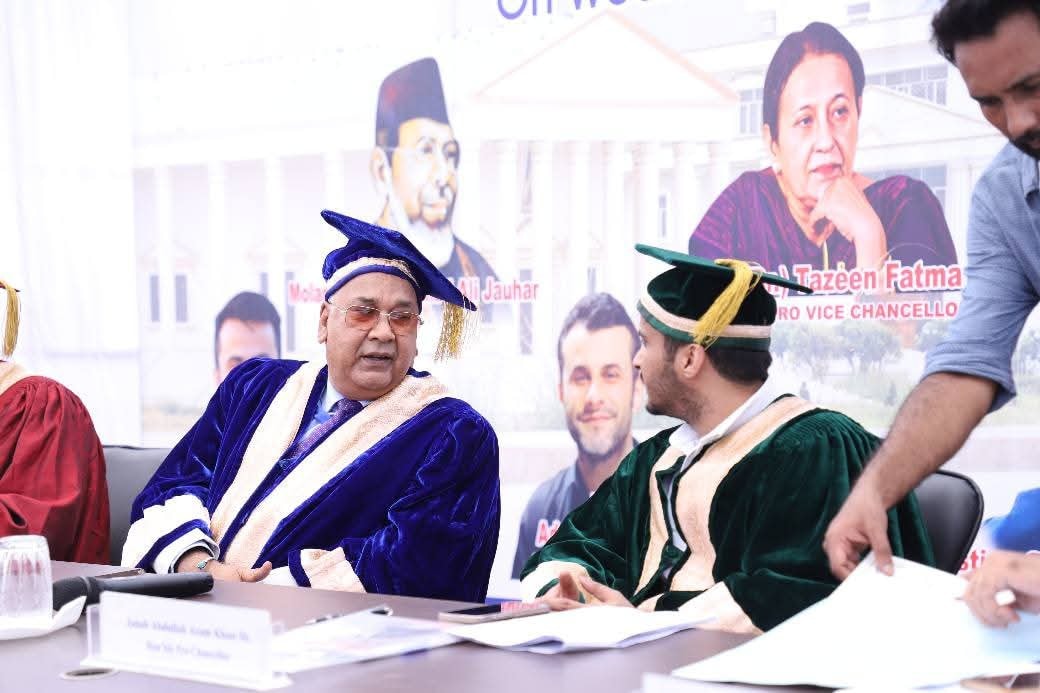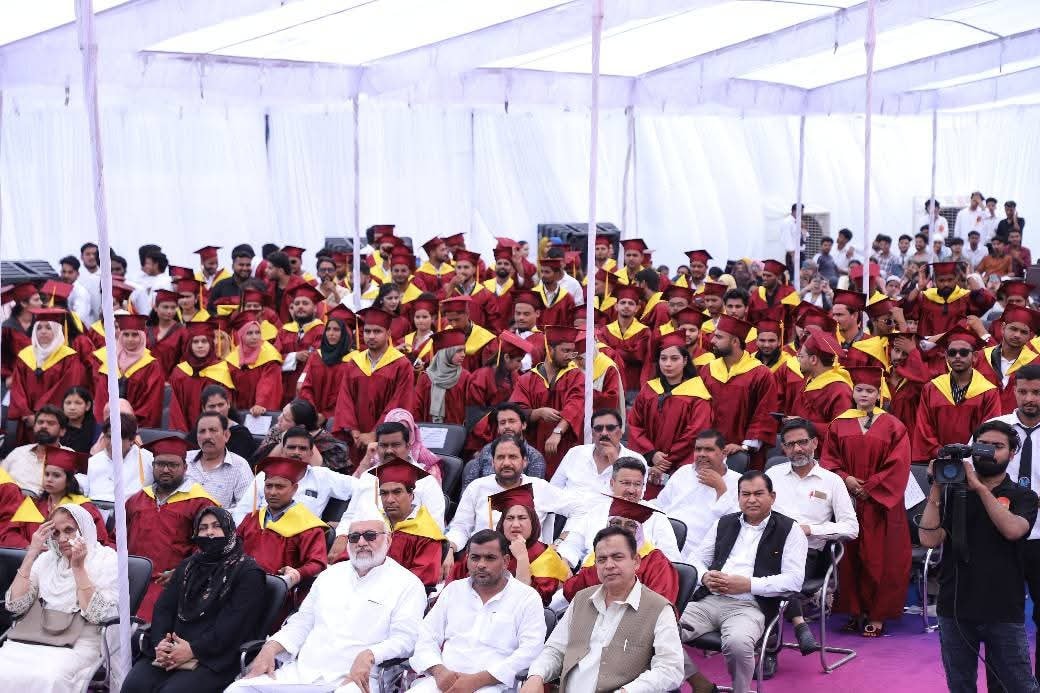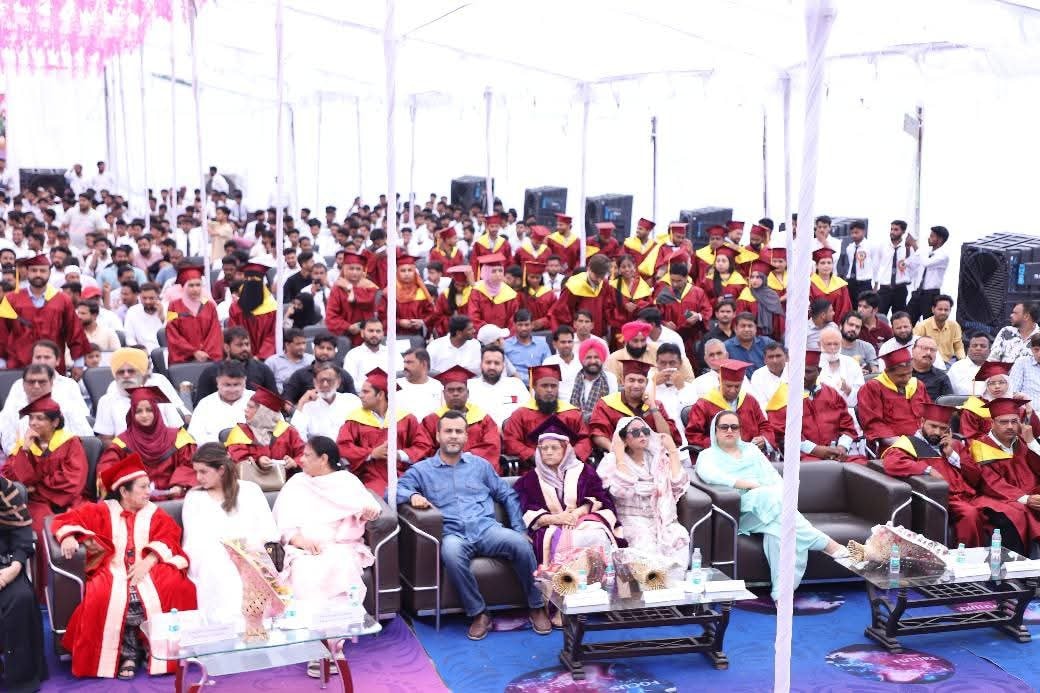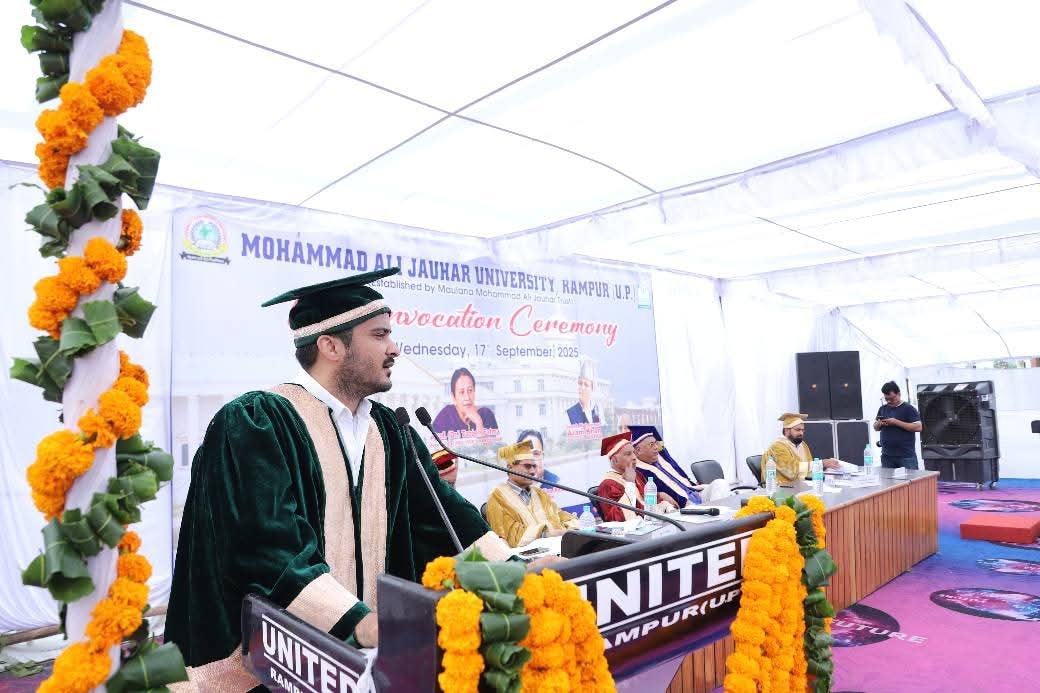On 16 September 2025, Maulna Mohammad Ali Jauhar University at Rampur hosted its fifth convocation under an open pandal, a ritual redolent with pain and pride, when SP’s former MLA Abdullah Azam spoke to a jam-packed crowd with an address less a valedicut and more avalidation of life. With 600-plus students receiving engineering, humanities, law, and medical sciences degrees respectively, it was a historic day for an institution born out of Azam Khan’s imagination to educate Uttar Pradesh’ oppressed per chance. But it was Abdullah’s sheer mention of imprisoned father’s indomitable will and a salute to its previous Governor Aziz Qureshi’s key role to accord minority character to the university upon which stood the day, open sky above being a huge uncompromising witness.
Abdullah, who was recently released on bail after remaining incarcerated for two years for charges as varied as rioting and forgery to receiving stolen property and vandalism, spoke with a trembling yet unbent voice. “Only education is the weapon that makes you fight against each and every hardship,” he said through Hindi, mirroring the university set up by his father Muhammad Azam Khan in 2006 with a special legislative bill. The university, named after the freedom fighter Maulana Mohammad Ali Jauhar, was envisioned to act as a beacon for oppressed minority communities through a state political fault lines run all too common through access to education. Yet its course has hardly been silky smooth, embroiled by allegations of land encroachments and administrative malpractices to suspend the Azam clan within Uttar Pradesh’s anti-corruption agencies’ crosshairs.

The core of Abdullah’s speech was its personal resonance. “In the last two years in jail, I never once saw my father smile,” he said, his words falling like a stone in the pandal, where Azam Khan’s wife, Dr. Tazeen Fatma, herself out on bail, and the university officials sat to witness. Azam Khan, a looming SP behemoth and erstwhile cabinet minister, is incarcerated in Sitapur jail, health purported to be weak, entangled in a legal minefield of some 80-plus cases ranging from land grabbing to hate speech. Abdullah, however, embedded the moment in hope by employing the day’s clear skies as a simile: “Just as the weather has blessed us today, with Azam Khan’s patronage, a new sun will very shortly appear and shower upon the clouds of all ills and scatter them away.” The statement, with silent conviction, was at once a commitment to and a veiled challenge at the state’s prosecutorial frenzy with his relatives.
Abdullah’s address widened to celebrate Aziz Qureshi, the late Congress leader and former Governor of Uttar Pradesh who, in July 2014, signed the Mohammad Ali Jauhar University (Amendment) Bill to solidify its minority character through intense political opposition. Qureshi, who passed away in 2024, successfully navigated through an opposition storm and consulted with the Advocate General to ensure the decision withstood attempted de characterizing efforts at the university. “All of us owe debts to Dr. Aziz Qureshi,” whispered Abdullah. “His fortitude as Governor ensured this university remained a sanctuary for minority education and shielded it from elements who sought to dismember it.” Qureshi’s move, reinforcing National Commission for Minority Educational Institutions’ ratification of May 2013, became a Gordian knot, guaranteeing the university’s legally binding existence through a state where minority institutions are battlefields through wider culture wars.

The convocation itself was a victory moment for an institution which has suffered existential challenges. Brought to life through the Mohammad Ali Jauhar University Act of 2005, the university has suffered persistent hostility, from orders by courts to demolish its allegedly unauthorized gates to its state taking 170 acres worth of its land back in 2021 for violating usage terms. Its critics at least are all too often BJP-led state administration aligned and have characterized Azam Khan’s vision as monument to political extravagance with land deals and financial malpractices being probed ever since SP was ejected out of power back in 2017. Yet it is still there with its class rooms filled with first generation students from Rampur’s economically devastated interior, its degrees being silent disprova to those who see it as political enterprise first and education second.

The presence by Dr. Tazeen Fatma, who carries her husband’s legal battles, and full university faculty lent gravity to the occasion by way of a collective protest. Abdullah’s appeal to his father’s satisfaction at the success of the convocation despite being away resonated and echoed through social media as portions of the speech went viral using #JauharConvocation2025. The ceremony with its conferring of degrees through disciplines was less show and more stamina, a validation of the staying power of institutions like Jauhar forged out of minority aspiration and pounded out through will-power alone. Abdullah’s address, weaving together his dad’s vision and Qureshi’s narrative, cast the university as a flourishing monument to resistance. In Rampur, where education is armor and sword combined, graduation and announcement were one and the same at the convocation: lights of learning, kindled by a jailed dad and a departed governor, can never burn out.

Founding Editor of The Jamia Times. An alumnus of Jamia Millia Islamia, he previously worked with The Quint and Maktoob Media, focusing on hate crimes, marginalised communities, and democratic rights in India. His reporting has documented custodial torture, caste and communal violence, and the everyday struggles of vulnerable groups across Uttar Pradesh and beyond. His work has also appeared in national and international outlets, amplifying grassroots stories to wider audiences.

